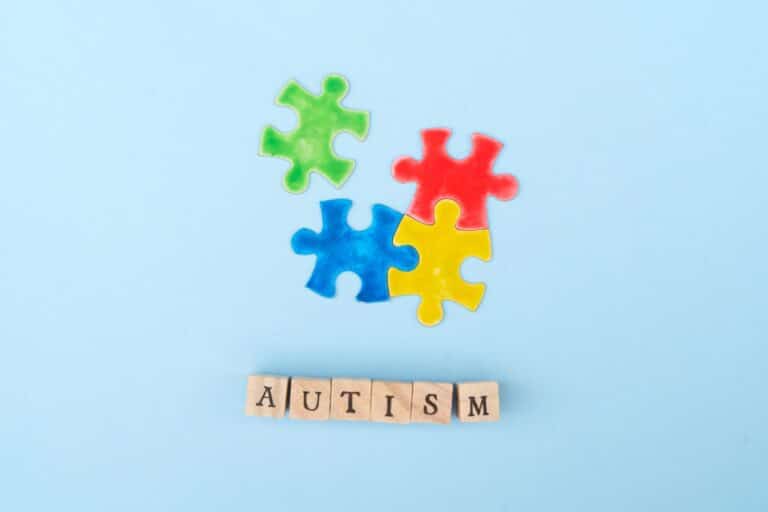According to the National Center for Drug Abuse Statistics (NCDIS), about 7.4% of people 12 years and older have tried ecstasy at least once in their lifetime. And while ecstasy is typically associated with dance parties (raves) or music festivals, it’s neither a safe nor addiction-free drug. Ecstasy use may result in long-term mental and physical side effects and addiction. Is ecstasy addictive… Learn more here.
What is Ecstasy?
The scientific name for ecstasy is 3,4-methylenedioxy-methamphetamine. Other names for ecstasy are MDMA or “Molly.” Ecstasy works as both a stimulant and a hallucinogen. The drug impacts the brain’s dopamine reward pathway, creating feelings of emotional warmth, pleasure, sensory distortion, and increased energy.
The effects of ecstasy last about 3-6 hours. However, many ecstasy users take a second dose or more once they feel the impact of the previous dose wearing off.
People who use ecstasy usually take the drug in capsule or tablet form. In some cases, ecstasy is snorted or consumed in a liquid form. Although the nickname “Molly” refers to ecstasy’s supposed pure “molecular” crystalline state, many drugs sold as ecstasy are not MDMA. For example, synthetic cathinones — more commonly known as “bath salts” — are a common ecstasy replacement or additive.
Ecstasy can transform emotions into (false) feelings of connection, closeness, and empathy that make the drug tempting. Behind the drug’s seemingly harmless facade are a variety of dangers, some of them possibly fatal.
What are the Side Effects of Ecstasy?
Ecstasy targets three main brain chemicals, causing substantial changes in the brain and body.
- Norepinephrine: Ecstasy affects norepinephrine, which raises blood pressure and heart rate.
- Serotonin: The feelings of arousal and trust the drug produces stem from its effects on serotonin.
- Dopamine: Energy and pleasure is enhanced due to ecstasy’s influence on the brain’s dopamine reward system.
A few side effects of ecstasy use are:
- Blurred vision
- Nausea
- Sweating
- Dilated pupils
- Thirst
- Chills
- Teeth clenching
- Muscle cramps
Even after moderate use, people who take ecstasy may experience the following symptoms within a week of their last dose.
- Impulsiveness
- Irritability
- Aggression
- Depression
- Sleep problems
- Anxiety
- Attention issues
- Decreased appetite
Individuals who use ecstasy may also take other drugs simultaneously, which can cause additional side effects.
What is the Addiction Potential for Ecstasy?
While research into the addiction potential for ecstasy remains ongoing, anecdotal evidence suggests that ecstasy is potentially addictive. Ecstasy’s potential for abuse and addiction would not be surprising. After all, ecstasy affects the same chemical pathways as other addictive drugs.
In one study, a survey of ecstasy users found that 43% met the diagnostic criteria for drug dependence. These participants experienced evidence of addiction, such as tolerance to ecstasy and continued use despite adverse results.
Individuals who stop using ecstasy after prolonged use may experience the following withdrawal symptoms:
- Depressed feelings
- Poor appetite
- Fatigue
- Difficulty concentrating
- Memory issues
Current data points to ecstasy’s neurotoxic properties and abuse potential. The use of ecstasy, even for a short period, may increase the risk of permanent cognitive and memory problems.
Repeated use of ecstasy injures the brain, nerves, and vital organs. Long-term effects may result in lasting brain damage showing up as
- Neglect of responsibilities
- Compulsive behaviors
- Loss of judgment
- Cardiovascular issues
- Kidney failure
- Hemorrhaging
- Psychosis
- Convulsions
- Death
This long-term effect may also drive many ecstasy users to eventually become addicted. Brain damage resulting in reduced problem-solving skills, logical reasoning, and emotional intelligence may tip a regular ecstasy user into abuse. In turn, the resulting increase in risk-taking behavior and poor decision-making intensifies the likelihood of addiction.
Can Ecstasy Be Dangerous?
Despite its seemingly innocent name, ecstasy comes with many hazards. In addition to its long-term effects, the drug also comes with immediate dangers.
Some immediate conditions include
- High blood pressure
- Panic attacks
- Fainting
- Loss of consciousness
- Seizures
Body temperature is a significant factor when it comes to the use of ecstasy. For example, ecstasy changes the body’s thermoregulation system. This system regulates body temperature, keeping the body from overheating or underheating.
People who use ecstasy typically do so in a nightclub or dance party. These are areas known for crowds and physical closeness. The enclosed and warm environment heats up quickly, causing an individual’s body temperature to rise.
For people on ecstasy, this environment can be life-threatening. As the body heats excessively, muscle breakdown occurs and may trigger kidney failure or brain swelling.
In addition, people who take ecstasy often do so with other drugs or alcohol. Combined with other substances, ecstasy becomes even more problematic. Moreover, the false sense of connection and distorted thinking caused by ecstasy encourages unprotected sex, impaired driving, and other high-risk behaviors.
Signs of Addiction to Ecstasy
Like most drugs, ecstasy abuse starts from peer pressure, curiosity, or experimentation. In many cases, abuse of the drug leads to addiction. Eventually, the individual begins to use the drug more often to feel its effects. A deep craving for the drug develops, and the individual keeps using the drug despite the negative consequences.
Here are a few signs of ecstasy addiction:
- Changes in friends
- Difficulty meeting responsibilities
- Does not attend events where ecstasy will not be present
- Secretive or deceptive behavior
- Financial trouble
- Mood swings
- Hiding the drug
Getting Help for Ecstasy Addiction
Help for ecstasy addiction starts with drug detoxification and then to rehabilitation. After a thorough consultation, addiction treatment experts may determine that a detox is necessary to remove drug toxins and any remaining drugs from the body. A drug detox happens under the supervision of trained professionals, making the experience less distressing for the client.
After detox, addiction treatment experts implement individualized interventions to help clients remain drug-free. Some examples of addiction rehabilitation therapies include cognitive behavioral therapy (CBT), art therapy, or meditation. This mix of treatments provides the coping skills necessary to address issues that may have contributed to the addiction.
Treatment for ecstasy addiction is imperative to reduce the long-term effects of ecstasy. Mental health and treatment professionals help people navigate the road to recovery.
SoCal Sunrise for Ecstasy Addiction Treatment
SoCal Sunrise is a well-established and trusted name for treating substance use disorders. Our experienced team of clinicians and addiction specialists utilize a combination of talk therapy, holistic treatments, leisure therapy, and mindfulness to help clients overcome their addictions. Let us help you or your loved one combat ecstasy addiction in a supportive and caring environment.
Contact us today to start the path to a drug-free future.






